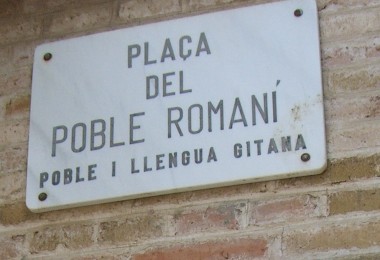Translation Romani has decided to maintain use of the word Romani in all language versions of this website, inclusively and in reference both to the language and people of all the diverse ethnic communities throughout the world, i.e. Roma, Sinti, Manuš, Calé, Romanichal, Kalé, and many others. Please read the important notes from our translators for explanations and other translations currently in use locally, nationally or regionally.
Close this box.
Ethnic groups can be recognized and protected as official minority groups within a given nation-state or region. Ascribing an official category to a specific group of people in this manner implies the possibility of obtaining legal recognition, representation, language, education and translation rights. Romani peoples worldwide are historically connected by a past history and heritage in common, yet historical circumstances have dictated that they occupy very diverse geographical areas. The act of officially recognizing an ethnic or minority group usually implies defining the group`s specificity and identity. For Romani, defining a mutual platform of commonality that equally respects the significant heterogeneous linguistic and cultural traditions of a group across different national borders is a constant challenge in modern times. Over the years, Romani activists of many different nationalities have sought to create and implement a variety of agendas capable of uniting the diverse local groups, through concepts of shared history, issues of discrimination and persecution, language, oral traditions, culture, etc. The act of delineating specific characteristics connected to Romani identity allows activists to advocate on behalf of communities for concrete rights. These rights can be legal, social, cultural, political and linguistic. To claim status as an official minority group means, for example, that advocates must be cognizant of the legal definition of "minority" in relation to the "majority" populations of a given nation-state or region, as it is stated in the local constitution or charter. Ethnic, minority or national groups are all articulated politically in terms of local government structures and in accordance with local legislation. They are not always defined according to the same criteria, even though groups themselves have a clearly defined sense of their own collective identities.
Romani has been recognized as a minority group and/or language in different places at different historical times. For example, in 1925, the Soviet Union granted the Romani population national minority status and the right to be educated in Romani. In the Americas, Colombia officially recognized Romani as an ethnic group in 1999 and granted status of protection in 2010. Other initiatives have been implemented historically in The Republic of Macedonia, Serbia, Bosnia and Herzegovina, Slovenia, Czech Republic, Slovak Republic, Romania, Poland, Hungary, Germany, Austria, the Netherlands, Croatia, Romania, Russia, Norway, Sweden and Finland. Some countries have ratified the European Charter for Regional or Minority Languages and included Romani as one of their minority languages. However, even when Romani is officially recognized by national, regional or international entities, the authorities representing these entities do not always implement initiatives that could concretely promote and foster the social, cultural, linguistic, political and legal rights of the communities they presumably benefit and protect. Furthermore, after the collapse of communism in eastern Europe, many Romani even lost their citizenship.
References:
Karanth, Dileep (ed), Danger! Educated Gypsy. Selected Essays. Ian Hancock, Hertfordshire: University of Hertfordshire Press, 2010.
LeBas, Damian and Acton, Thomas (eds), All Change! Romani Studies through Romani eyes (Hertfordshire: University of Hertfordshire Press, 2010).
Matras, Yaron (2002), Romani. A Linguistic Introduction, Cambridge: Cambridge University Press.
O`Nions, Helen (2007), Minority Rights Protection in International Law. The Roma in Europe, Hampshire: Ashgate Publishing Ltd.
Romani Project, School of Languages, Linguistics and Cultures at the University of Manchester, retrieved 4 Sept 2011 at http://romani.humanities.manchester.ac.uk/whatis/status/recognition.shtml.
Sigona, Nando and Trehan, Nidhi (eds), Romani Politics in Contemporary Europe. Poverty, Ethnic Mobilization, and the Neoliberal Order (New York: Palgrave Macmillan, 2009).
Vermeersch, Peter (2006), The Romani Movement. Minority Politics & Ethnic Mobilization in Contemporary Central Europe, New York, Oxford: Berghahn Books.

Sar? (Kalderash)
Sar? (Gurbeti)
Sar? (Lovari)
Sar? (Xoraxane)


